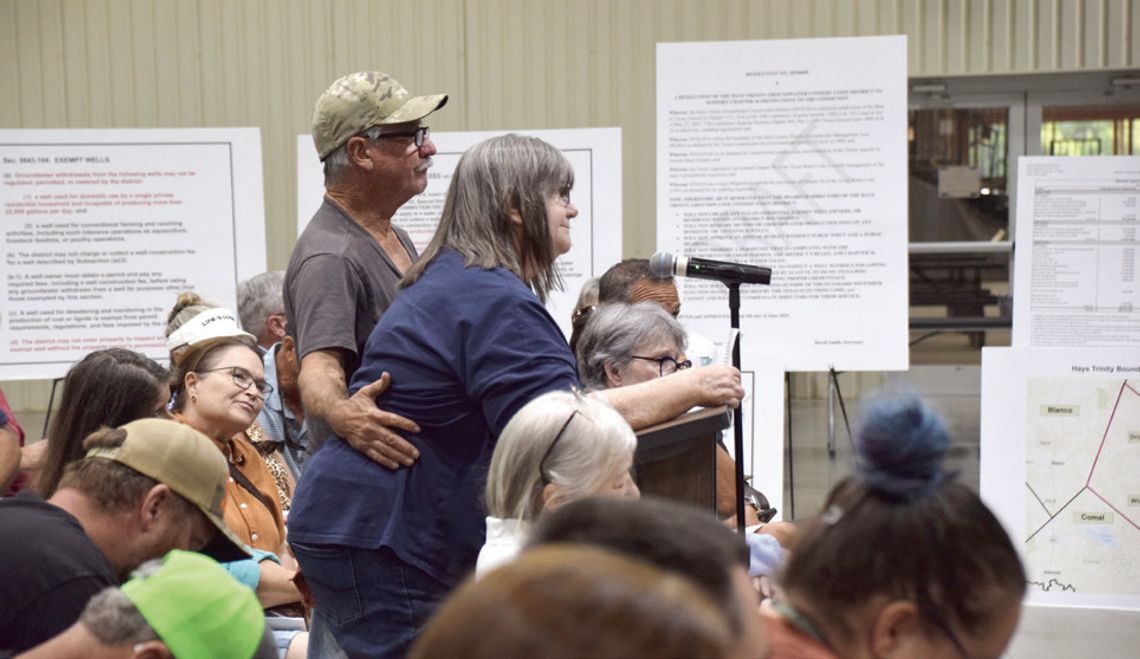Close to 200 residents from the Dripping Springs area attended a board meeting for the Dripping Springs Water Supply Corporation (DSWSC) on the evening of June 9. They were joined by a number of local political figures, including Rep. Carrie Isaac, Hays County Commissioner Walt Smith and Dripping Springs Mayor Bill Foulds, Jr.
As demonstrated by a show of hands, most residents were there in regards to item number 7 on the agenda - discussion and possible action to “Cancel all bulk water, truck meter, hydrant meter, and construction bulk water sales.”
The item was originally on the agenda for the May meeting, but because of the overwhelming number of people who showed up that day, it was moved to the June meeting to allow DSWSC time to find a larger meeting space - which they secured at Dripping Springs Ranch Park.
This is the latest development in a fight over the area’s water supply. Several water bills had been making their way through the 89th Texas Legislature. One of those, SB 2660, was left pending in committee. Another, SB 1253, was passed in both the House and Senate and was sent to the Governor on May 28 and is waiting to be signed into law.
That bill, as well as a lawsuit between DSWSC and the Hays Trinity Groundwater Conservation District (HTGCD) alleging overpumping, were cited as reasons that DSWSC is considering ceasing bulk water sales. Complicating the situation is the fact that DSWSC is currently operating under a 40% curtailment imposed by HTGCD due to drought conditions.
“The way I see it, we are being squeezed by Texas legislation based on the fact that we’re supposed to provide this service, yet we can be curtailed by whatever the groundwater conservation district wants to do,” DSWSC Director Charlie Busbey said. “Our engineer provided us with some general system information a couple meetings ago, and he said serving existing customers without exceeding that 40% curtailment is not feasible. So what are we supposed to do?”
Busbey said that bulk hauling is something that DSWSC has been doing for a long time. They know that people with rainwater collection systems or people who have problems with their wells sometimes need bulk water.
“So we don’t really want to stop that, but the reason this item is on the agenda is because we have to seriously consider that,” Busbey said.
More than 100 people signed up to speak during the public comment period. Each person could speak for up to three minutes. Speakers included a broad range of people, from elected officials, business owners and bulk water haulers to citizens who rely on bulk water to supplement their rainwater collection and water wells.
One of those residents was Jean Cyrus, who was accompanied by her husband Craig Cyrus. The couple bought a place west of Dripping Springs in 1993.
“We invested everything that we had in making our place a home. We had a well dug in May of 1993, but unfortunately in 2011, it went dry and we have had to haul water ever since,” Jean Cyrus said. “So this is a very personal issue for me and my husband. We need access to water.”
Cyrus said that people who must haul water are very well aware of how precious the resource is, and are very conservative in its use.
“I am very well aware of how many gallons I use a month, and I am thankful that my husband has been able to haul water for our use at a couple of hundred gallons at a time, but we've had to have a water hauler bring us loads when our vehicle was broke down or our tank was too low,” Cyrus said.
She said it doesn’t appear that people on municipal water have the same concerns as the rest of the residents.
“I'm not even going to pretend to know the politics of this situation,” Jean said. “I'm learning more, but I just know that it's highly insulting when I see all the new subdivisions and apartment complexes being built, a new car wash coming into town, and sprinklers being used in all these neighborhoods on a very frequent basis to keep the yards lush and green.”
She also expressed concern about moving more and more people into a city that doesn't have the infrastructure or resources to support it.
“What I do care about is having water to drink, water to shower, flush my toilets, wash my clothes and dishes, and water to put out small fires that may spark, to keep them from becoming out of control,” Cyrus said. “We are in serious trouble with our aquifers. But please reconsider keeping bulk water sales available. It is our lifeline.”
The remarks from Cyrus, similar to a lot of those from local residents, were followed by a loud round of applause from the room.
After comments were concluded, the DSWSC board passed a resolution to prohibit bulk water sales for construction activities. Other bulk water sales will be allowed to continue - for now.
DSWSC Vice President Travis Crow reminded the crowd that this is a central Texas issue, not a Dripping Springs water issue, and said he wanted to see what the numbers look like moving forward.
“If we cut off the construction water, let’s see what bulk water haulers are really hauling. This isn't off the table for me,” Crow said.
Crow called on people not to fill pools, and he asked bulk water haulers to help enforce that.
“I know it's money out of your pocket, but we are fighting for citizens here that need drinking water,” Crow said. “We just told construction people, we're not putting it on the road. Don't put it in your damn pool.”
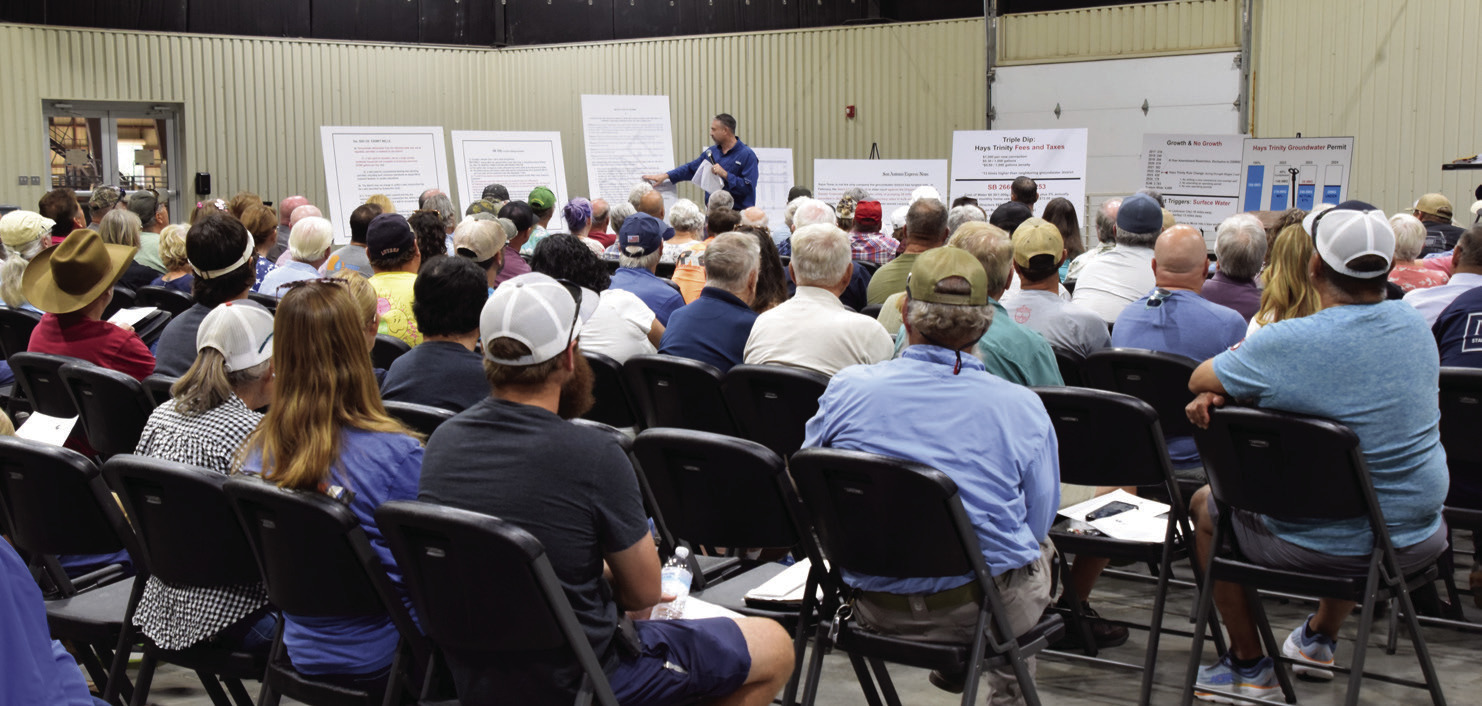
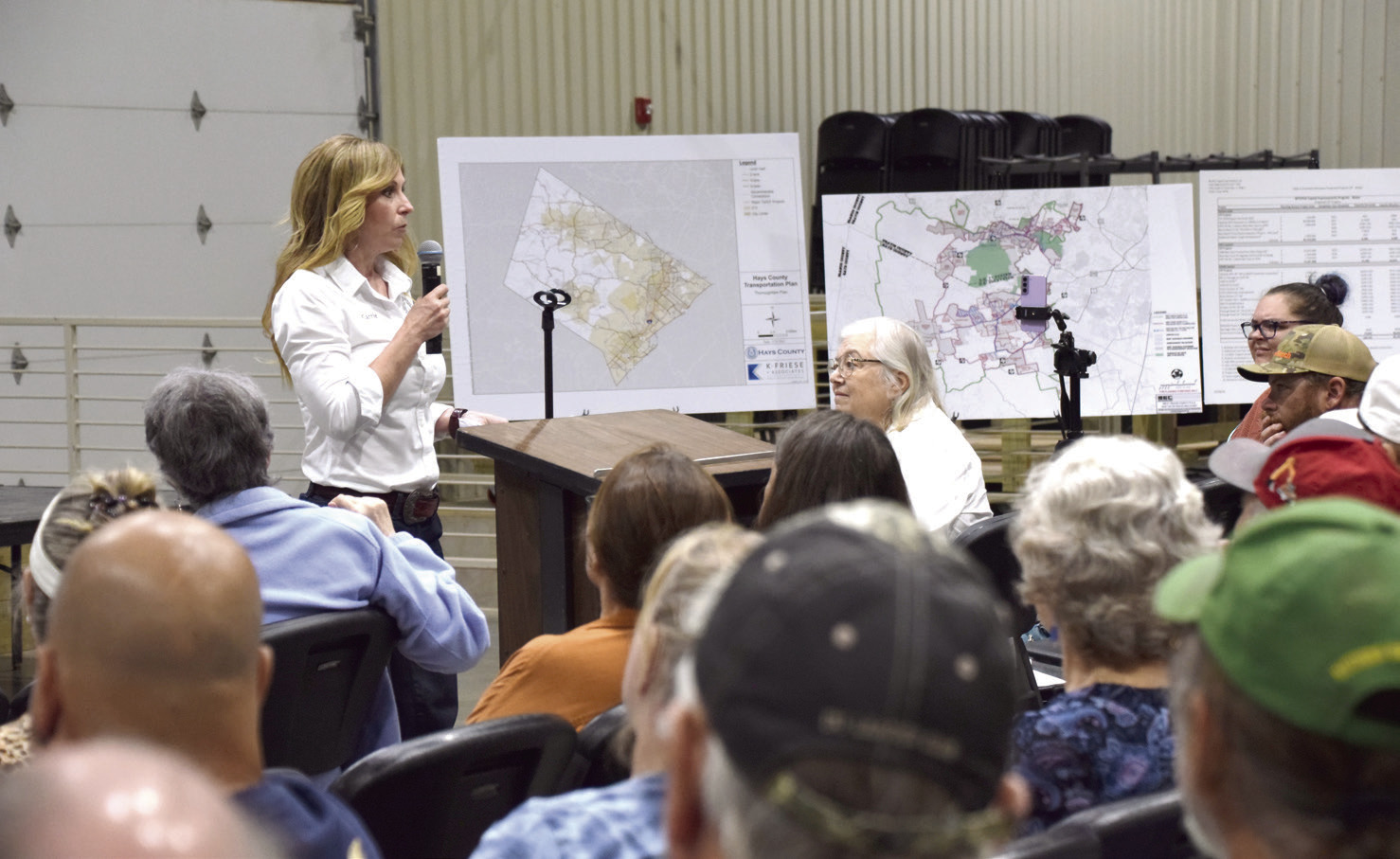

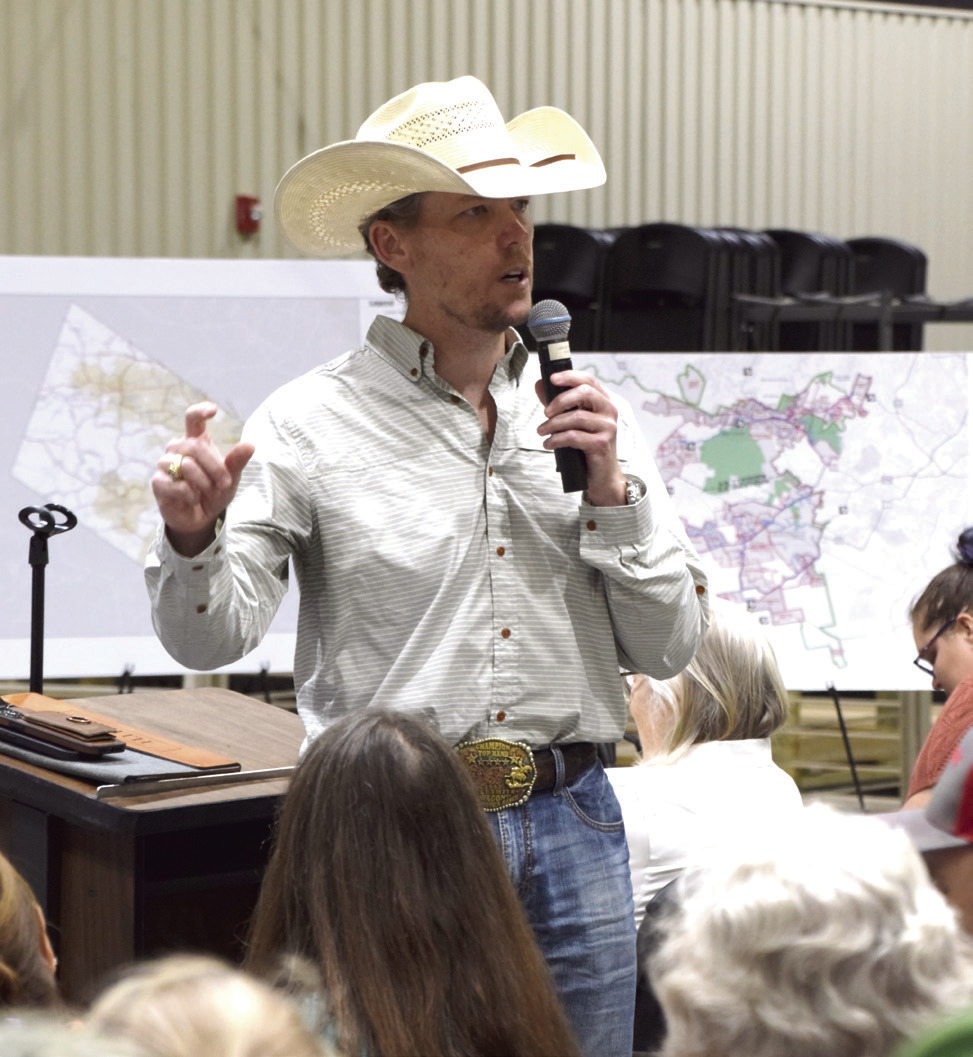
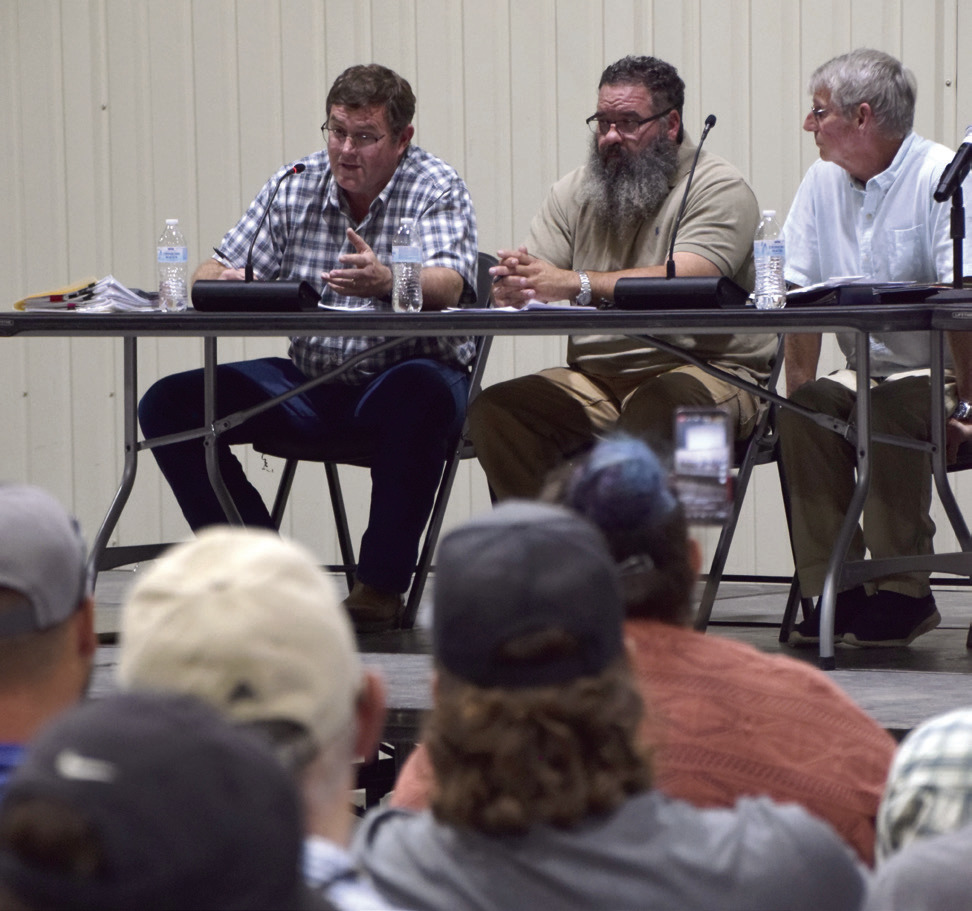
.png)


